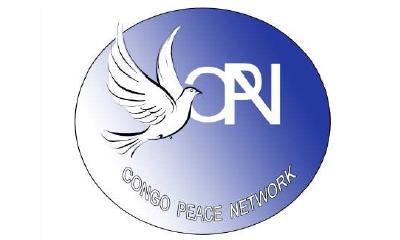|
|
A Peace Message on the Cell Phones
un articulo por Patrick Mulemeri, Coordinator of the Congo Peace Network
We have the honor to announce that very soon in September, the Congo Peace Network, will launch its campaign for peace and social dialogue in local communities for peaceful conflict resolution without violence.

click on photo to enlarge
To this end, a telephone message will be broadcast with the theme " A MESSAGE OF PEACE IN OUR PORTABLES" as an alternative to " BLOOD IN OUR PORTABLES". This will use equipment coming from the mines in the zones of the conflict of the Democratic republic of Congo. You may receive messages in your cellphones calling for the support of peace and social dialogue to solve the potential conflicts in the local communities of the province of Nord Kivu, Democratic Republic of Congo.
We plan to issue a press release to the attention of all the partners of the Congo Peace Network, 48 hours before the official launch of the telephone message. At present we are working on a partnership with the telecommunication company Vodacom Congo for this purpose.
Congo Peace Network is a non profit organization promoting peace and peaceful coexistence, which contributes to build sustainable peace in the respect of human rights in Democratic Republic of the Congo; through specific programs, such as ‘’the peace and nonviolence school’’.
The peace and nonviolence school is a strategy of the Congo Peace Network for effective implementation of peaceful civic education. This program is focused on internal causes of conflict and uses the educational sector in order to promote the acceptance of diversity. "Since revenge and hatred are conceived in the human mind, it is in human mind they must be defeated."
In the 1986 Seville Declaration adopted by scientists around the world, it is stated that « war is not inevitable, written in the genes. The spirit of violence is not human nature or instinct, but it is indeed a social invention. Therefore, « the authors of war are able to become the authors of peace». This is the motivation of our campaign and the ultimate goal of the school of peace and nonviolence.
(Click here for a French version of this article)
|








|
DISCUSSION
Pregunta(s) relacionada(s) al artículo :
Can you add to this analysis of the Democratic Republic of the Congo?,
* * * * *
Comentario más reciente:
Evolution of the Peace Process in the Democratic Republic of Congo
submitted to CPNN in French by Solidarité avec les Victimes et pour la Paix and translated into English by CPNN
For the original article in French, see RDC Solidarite.
From the recent past to today
After the armed hostilities in 1996 and the fall of Mobutu in May 17, 1997, there was a period of relative calm for fourteen months. A new rebellion began on August 2, 1998. Very early, negotiations started in Lusaka (Zambia) and arrived at the first agreements of ceasefire dated from July 10, 1999. It was to oversee respect of these agreements of Lusaka that the Security Council of the United Nations set up its resolution creating the Observation Mission of the United Nations (MONUC).
It was in October 2006 that the first free elections were organized.
To establish an account of the situation is difficult, but it is easier to say that at the present time the effects of armed conflict are still sad at various levels. There is extreme poverty in the civilian population. Until the present a responsible solution has not been found to assure access of children to education.
Good news today is that the country now has a Constitution, a President of the Republic, a Parliament and a Senate and provincial assemblies as well as provincial governments following the democratic elections organized in 2007. In general, the Democratic Republic of Congo is arriving slowly at peace and stability despite the constraints of reconstruction and restoration of a state of law.
Without pretending to be exhaustive, this report is a description of human rights violations on the civilian population in the city of Kinshasa. Acts of torture continue to take place. . ... continuación.

|
|








